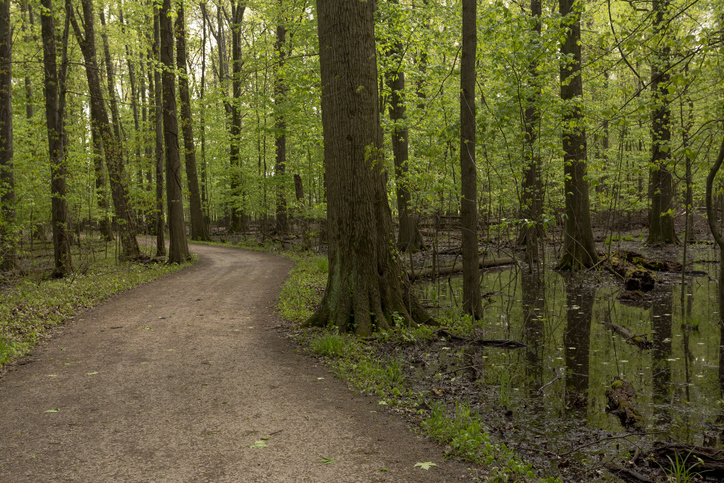We Continue to Hold Our Noses on Composting
June 21, 2012
The practice is as old as our popular beaches, but we gave up on it decades ago and we are loath to bring it back. We have no trouble handing a retired major-league pitcher who wants to play in the ultra-competitive world of video games $75 million, but we consider collecting compostable food scrap too messy.
Like everything else, it’s all about the Benjamins, and we have decided composting at the municipal, business and university levels isn’t worth it. The Economic Development Corporation (EDC) doesn’t care because no one has made false promises that food-scrap collection will create 450 Rhode Island jobs. Many state legislators don’t care or even understand the practice.
Before the 2012 General Assembly session recently ended, lawmakers passed a bill in response to last year’s odor crisis at the Central Landfill. Among other things, the bill bans food waste from being used in the landfill’s daily cover — a practice the Rhode Island Resource Recovery Corporation has never implemented. The bill, however, makes no reference to stopping the continued practice of burying this valuable material in the state landfill.
Instead of proactively addressing the issue of statewide composting, which would create some jobs, extend the life of the landfill, enhance the quality of Rhode Island’s topsoil and be environmentally beneficial, we wait around hoping a North Carolina company will come here and build an anaerobic digester. We’re still waiting, and wasting an opportunity to better provide ourselves with an energy alternative.
Meanwhile, two neighbors to the north — Massachusetts, which didn’t fall all over itself to keep Curt Schilling, and Vermont — are actually addressing the problem of burying food waste and not leaving it to be solved by a handful of farmers, activists and concerned consumers.
Beginning in 2014, the Bay State will ban food waste from businesses, schools and other institutions. By 2020, the program aims to compost 45 percent of its million or so tons of annual organic waste. It’s also targeting 2020 for statewide residential food waste collection.
The Green Mountain State will require statewide composting by 2020, and a study commission will help businesses with the integration, which starts in 2014. For residents, it will mandate statewide leaf and yard waste by 2016 and food waste by 2017.
While some businesses here compost and some universities dabble in it, Rhode Island has no state-mandated food-diversion programs. We’re preoccupied with keeping pets larger than 35 pounds out of state campgrounds. Apparently, my 60-pound mutt is a nuisance, but my neighbor’s three yappy, little-breed pooches are just adorable.
Sorry. Like the General Assembly, I get distracted. Where were we? Oh, yes, our lack of statewide composting, or even a concerted effort, beyond the tireless work of Greg Gerritt and a handful of others, to get such an initiative started.
Massachusetts has about 20 private composting facilities across the state, and is offering loans to build a regional network of open and in-vessel composting systems. Here we have Earth Care Farm in Charlestown and a small band of other businesses collecting what they can. Support here comes in the form of a few “Thatta Boys” and some pats on the back.
The EDC and a former governor gambled away much of our financial support on No. 38.
The Massachusetts Department of Environmental Protection would like to be the first in the nation to ban food scraps from the trash at hospitals, hotels, large restaurants, universities and big businesses. Hamilton-Wenham and Ipswich even offer curbside, food-scrap collection programs.
We are content collecting Christmas trees and bags of yard waste, and keeping our tipping fees fantastically low.
Massachusetts officials are gambling that the numbers add up for businesses to divert organic waste. They claim hauling organic waste to a compost facility costs about a third less than trucking it to a landfill or incinerator. We whine that it would cost too much, be too hard to implement and wouldn’t interest a professional athlete.
And even when we make an effort, it’s all for naught. Brown University pulps its cafeteria food waste into a fine compostable material, but doesn’t have the money in its budget to pay for someone to pick it up. Much of it ends up in a Dumpster and winds up buried in the landfill.
In Vermont, officials say the cost to implement statewide composting will be spread across municipalities, waste haulers and businesses. Here, we pass a bill that requires the installation of six air-monitoring stations near the state landfill to gauge odors. It makes no mention of how eliminating food scrap from the Central Landfill would help dramatically reduce said odors.
Instead, we’ll have monitors that will tells us, “Yep, it stinks.”
Vermont’s composting initiative was launched out of a desire to increase the state’s flat 33 percent recycling rate. Rhode Island’s has stalled at about 24 percent. We’re hoping that by putting all of our recyclables into one bin will boost our lackluster rate.
Don’t worry about your food scrap, though. We’ll continue to bury it in the state landfill, and our new monitoring gauges will tell us when its rotting flesh is stinking up the neighborhood.
But at least Rhode Island makes me and my bothersome dog go camping out of state. I heard Massachusetts and Vermont are nice.
Frank Carini is the editor of ecoRI News.
Categories
Join the Discussion
View CommentsRecent Comments
Leave a Reply
Your support keeps our reporters on the environmental beat.
Reader support is at the core of our nonprofit news model. Together, we can keep the environment in the headlines.
We use cookies to improve your experience and deliver personalized content. View Cookie Settings




Frank has this right. RI punted again. Hopefully we can get a study commission next year. I talked to folks in VT, and they started with the study. We do not need to rush but we need steady forward motion